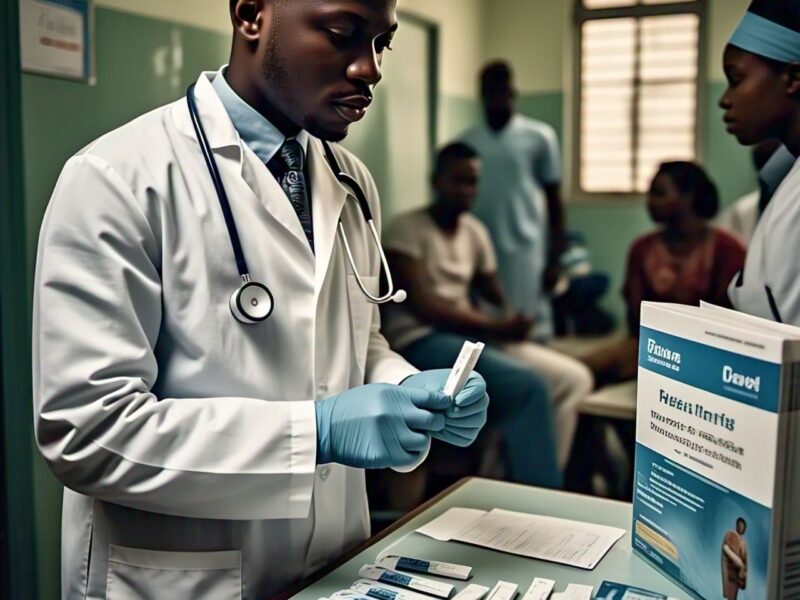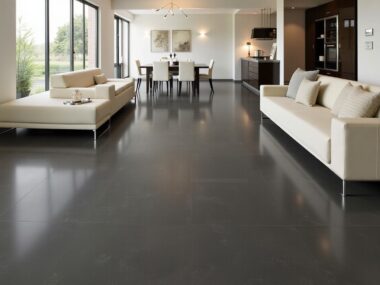In Nigeria, HIV testing stands as a cornerstone of public health, offering a vital entry point to prevention, treatment, and care for one of the world’s most significant HIV epidemics. With an estimated 1.9 million people living with HIV, according to the Nigeria HIV/AIDS Indicator and Impact Survey (NAIIS), understanding the cost of testing is essential for individuals seeking to know their status. As of March 31, 2025, we provide an exhaustive analysis of HIV testing prices across various platforms in Nigeria, from free government-backed initiatives to private sector fees and innovative self-testing options. This guide equips you with precise, up-to-date information on costs, testing types, and where to access services nationwide.
Table of Contents
ToggleOverview of HIV Testing Costs in Nigeria
HIV testing in Nigeria varies in cost depending on the setting and method. We outline the primary categories below:
- Public Health Facilities: Free to ₦2,000
- Private Clinics and Laboratories: ₦2,500 – ₦5,000
- Self-Testing Kits: ₦1,500 – ₦4,000
These ranges reflect the diversity of options available in 2025, influenced by location, provider type, and economic conditions. Public facilities often leverage donor funding to keep costs low or nonexistent, while private entities and self-test kits cater to those prioritizing speed, privacy, or convenience.
Detailed Cost Breakdown by Testing Type
We categorize HIV testing into three main types, each with distinct pricing structures:
Rapid Antibody Tests
- Cost in Public Settings: Free to ₦2,500
- Cost in Private Settings: ₦2,500 – ₦4,000
- Description: These tests detect HIV antibodies in blood or oral fluid within 15-20 minutes. Widely used in government hospitals and outreach programs, they’re often free due to subsidies from organizations like PEPFAR. In private clinics, fees cover staff time and equipment, averaging ₦3,000 in cities like Lagos.
Antigen/Antibody Combination Tests
- Cost: ₦3,000 – ₦5,000 (private only)
- Description: Combining antibody detection with the p24 antigen, these tests offer earlier diagnosis—within 11-28 days of exposure. Exclusive to private facilities due to their advanced technology, they’re pricier, with costs peaking at ₦5,000 in upscale labs in Abuja or Port Harcourt.
HIV Self-Testing (HIVST)
- Cost: ₦1,500 – ₦4,000
- Description: Self-testing kits, such as OraQuick or Wondfo, allow users to test privately at home using oral swabs or finger-prick samples. Prices vary by brand and retailer, with OraQuick often at ₦2,500 – ₦3,500 in pharmacies like HealthPlus.
Where to Access HIV Testing in Nigeria
We identify the key locations for HIV testing, each offering unique cost structures and benefits:
Government Hospitals and Clinics
- Cost: Free to ₦2,000
- Examples: University College Hospital (Ibadan), General Hospital (Lagos)
- Details: Supported by the National Agency for the Control of AIDS (NACA) and international partners, these facilities provide free rapid tests in many cases. Where fees apply—typically ₦500 – ₦1,500—they cover administrative costs or additional counseling.
Private Clinics and Diagnostic Labs
- Cost: ₦2,500 – ₦5,000
- Examples: St. Nicholas Hospital (Lagos), Pathcare Nigeria
- Details: Private providers offer faster service and confidentiality, with costs reflecting staff expertise and equipment. In urban areas, prices often hit ₦4,500 for combo tests, while rural labs may charge ₦2,500 for basic rapid tests.
Pharmacies and Online Retailers
- Cost: ₦1,500 – ₦4,000 (self-test kits)
- Examples: Jumia (https://www.jumia.com.ng), Konga (https://www.konga.com)
- Details: Self-testing kits are sold over-the-counter or online, with prices like ₦2,000 for Wondfo and ₦3,500 for OraQuick. Delivery fees of ₦500 – ₦1,000 may apply online.
NGOs and Community Outreach
- Cost: Free
- Examples: AIDS Healthcare Foundation (AHF), Society for Family Health
- Details: NGOs conduct free testing drives, targeting high-risk groups in cities like Abuja and rural zones in Benue, often distributing over 2.5 million kits annually.
Factors Influencing HIV Testing Costs
We highlight the primary drivers of HIV testing prices in Nigeria:
- Donor Funding: Programs like PEPFAR and the Global Fund keep public testing free or low-cost, though reduced funding in 2025 has introduced fees up to ₦2,000 in some clinics.
- Location Variability: Urban centers charge more due to higher operational costs—e.g., ₦5,000 in Lagos vs. ₦1,000 in Sokoto.
- Currency Fluctuations: The naira’s rate of ₦1,600 – ₦1,700 per USD increases import costs for test kits, pushing self-test prices to ₦4,000.
- Testing Complexity: Advanced combo tests in private labs cost more due to specialized reagents and equipment.
Read also: How Much Is DNA Testing in Nigeria?
Free HIV Testing Options in Nigeria
We emphasize the availability of no-cost testing:
- National Campaigns: Events like World AIDS Day (December 1) offer free rapid tests nationwide.
- PEPFAR Clinics: Facilities supported by the U.S. initiative provide free testing, with over 11 million tests conducted annually.
- NGO Initiatives: AHF Nigeria and NACA outreach programs target rural and key populations, delivering free services in states like Cross River.
Comparing HIV Testing Costs Regionally
We benchmark Nigeria’s prices against other African nations:
- Ghana: Free in public clinics; $3 – $5 (₦4,800 – ₦8,000) for self-tests
- Kenya: Free – $2 (₦3,200) in facilities; $5 (₦8,000) for kits
- Nigeria: Free – ₦5,000; self-tests at ₦1,500 – ₦4,000
Nigeria’s free public options align with regional norms, while self-test prices remain competitive due to local distribution efforts.
Read also: How Much is a Pregnancy Test in Nigeria?
Maximizing Affordability: Practical Tips
We offer strategies to reduce testing costs:
- Utilize Public Clinics: Seek government facilities for free or low-cost rapid tests.
- Join Outreach Programs: Attend NGO events for free screening and counseling.
- Buy Self-Tests Online: Look for discounts on Jumia or Konga, often dropping prices to ₦1,800.
The Broader Context: HIV Testing and Nigeria’s Health Goals
HIV testing costs in Nigeria reflect a delicate balance between accessibility and economic pressures. With 51,000 AIDS-related deaths yearly, affordable testing is crucial to achieving the UNAIDS 95-95-95 targets by 2030—ensuring 95% of people living with HIV know their status, 95% are on treatment, and 95% achieve viral suppression. Rising private fees highlight funding challenges, yet robust free options sustain progress in this critical health domain.
Conclusion: What You’ll Pay for HIV Testing in 2025
So, how much is HIV testing in Nigeria? As we’ve detailed, costs span from free at public and NGO sites to ₦5,000 in private clinics, with self-testing kits ranging from ₦1,500 to ₦4,000 as of March 2025. These prices cater to diverse needs—whether you seek affordability, speed, or privacy. By tapping into free services or shopping strategically for kits, you can access this life-saving test without financial strain, supporting Nigeria’s journey toward an AIDS-free future.



